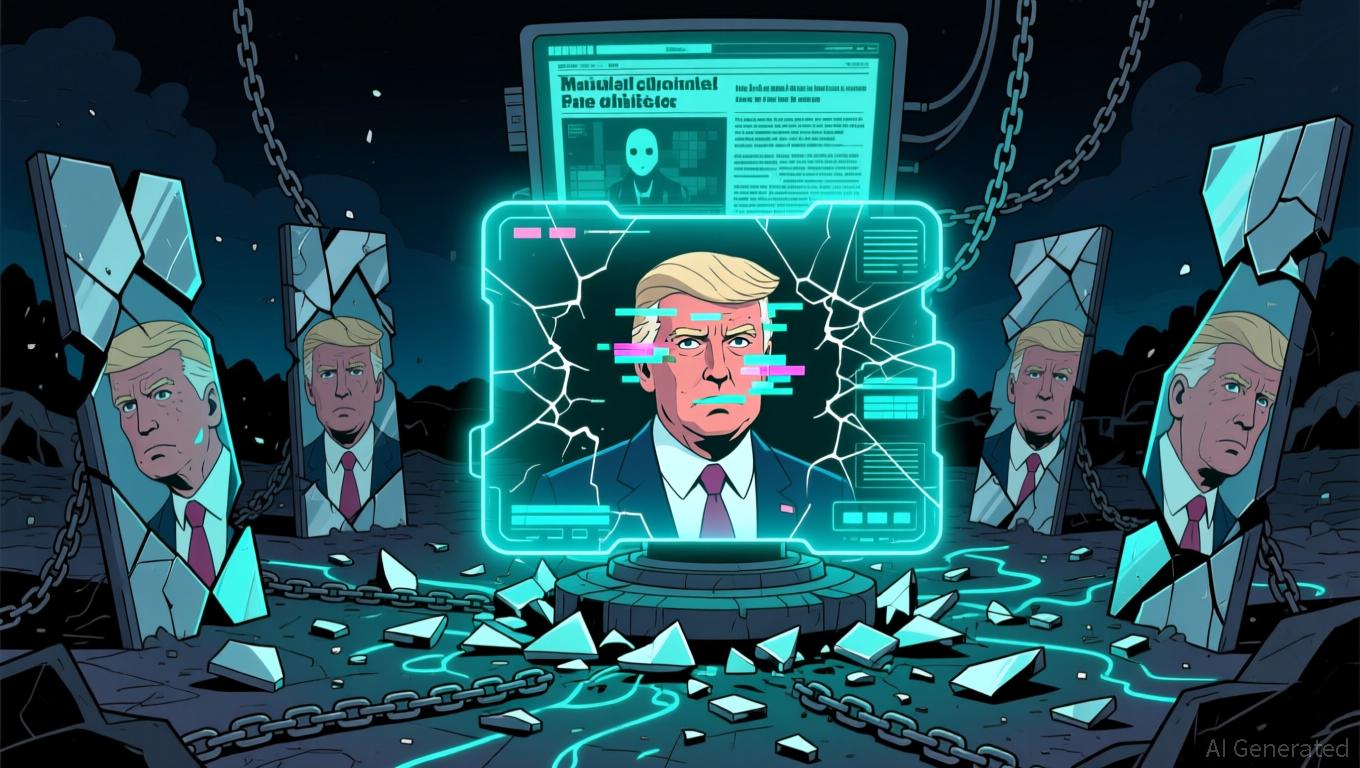Tharimmune’s $545 Million Initiative Speeds Up Blockchain Integration Among Institutions
- Tharimmune raised $545M via private placement led by DRW/Liberty City to build a Canton Coin treasury and develop institutional blockchain applications. - Funds will acquire Canton Coins, operate Super Validator nodes, and expand the Canton Network connecting Goldman Sachs , BNP Paribas, and DTCC. - Stock surged 120% post-announcement as Canton Foundation's first public investment and institutional backing from Deutsche Bank/HSBC highlight blockchain adoption trends. - Strategic leadership changes and $3
Tharimmune, Inc. (NASDAQ: THAR) has finalized a $545 million private funding round to launch a digital asset treasury plan focused on Canton Coin, the utility token that supports the Canton Network blockchain, as detailed in a
The raised funds will be used for Tharimmune’s purchase of Canton Coins, its responsibilities as a Super Validator on the Canton Network, and the creation of institutional-grade applications, as noted by Investing.com. In its Super Validator role, the company will run extra nodes to earn token incentives and boost network efficiency, according to a

Tharimmune’s entry into digital assets represents one of the largest institutional treasury deals so far, Cointelegraph reported. The company named Mark Wendland, previously DRW’s COO, as CEO to lead this initiative, while Mark Toomey from Liberty City Ventures has become President, per Morningstar. The current leadership team will remain in charge of Tharimmune’s biotech business, which specializes in treatments for inflammation and immune system disorders, The Block reported.
The Canton Foundation’s involvement in this funding round is its first investment in a publicly listed firm, The Block noted. DRW and Liberty City Ventures will allocate part of their investment directly into Canton Coins, which are not yet available on exchanges, according to an
This initiative reflects a wider movement in tokenized finance, where real-world assets (RWAs) now surpass $34.6 billion in value, including $18.4 billion in private credit and $8.7 billion in U.S. Treasury securities, as explored in a
Disclaimer: The content of this article solely reflects the author's opinion and does not represent the platform in any capacity. This article is not intended to serve as a reference for making investment decisions.
You may also like
Dan Tapiero says Bitcoin’s bull run is still on, but a 70% downturn could follow
OpenAI's Rapid AI Push: Prioritizing Pace Over Precaution Triggers Worldwide Criticism and Legal Challenges
- Public Citizen demands OpenAI withdraw Sora 2 over deepfake risks to democracy and nonconsensual imagery. - Sora 2's viral content, including disturbing videos and unauthorized Japanese content, sparks global copyright disputes. - Lawsuits allege ChatGPT caused mental health issues, while a German court rules it infringed song lyrics copyright. - Critics argue OpenAI prioritizes speed over safety, with reactive measures failing to address systemic risks. - The controversies highlight tensions between AI

Musk’s Pursuit of Technology Sparks Heated Debate with Cultural Commentators in Widely Discussed Dispute
Modern Monetary Theory and the Transformation of Crypto Valuations: Institutional Integration and Policy-Induced Drivers
- Modern Monetary Theory (MMT) is reshaping 2025 financial policies as central banks use it to manage post-pandemic economies, contrasting with crypto's decentralized ethos. - Crypto valuations now depend on regulatory alignment and institutional adoption, with 55% of hedge funds holding digital assets due to clearer U.S. regulations. - Central banks experiment with tokenized reserves while BIS demands stricter stablecoin governance, shifting focus from speculation to policy-driven stability. - A potential
